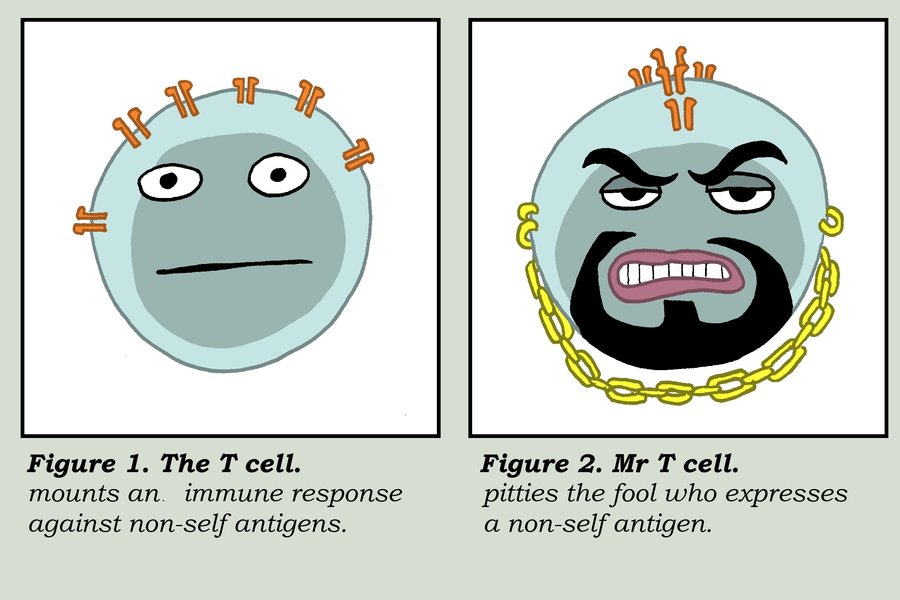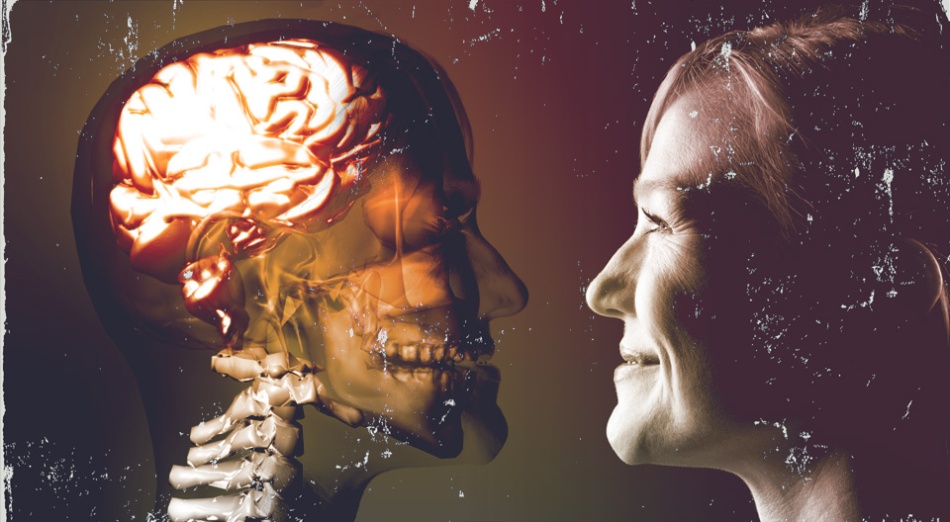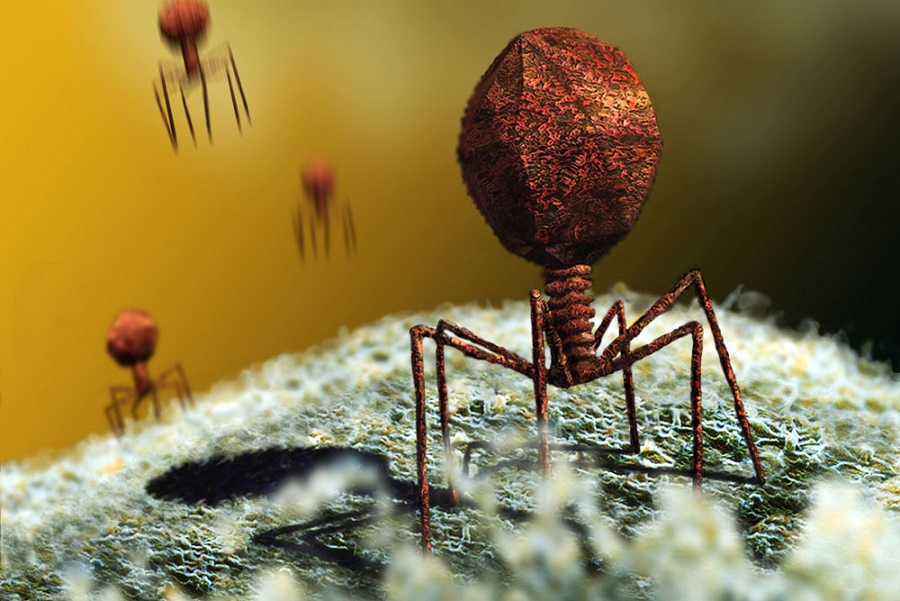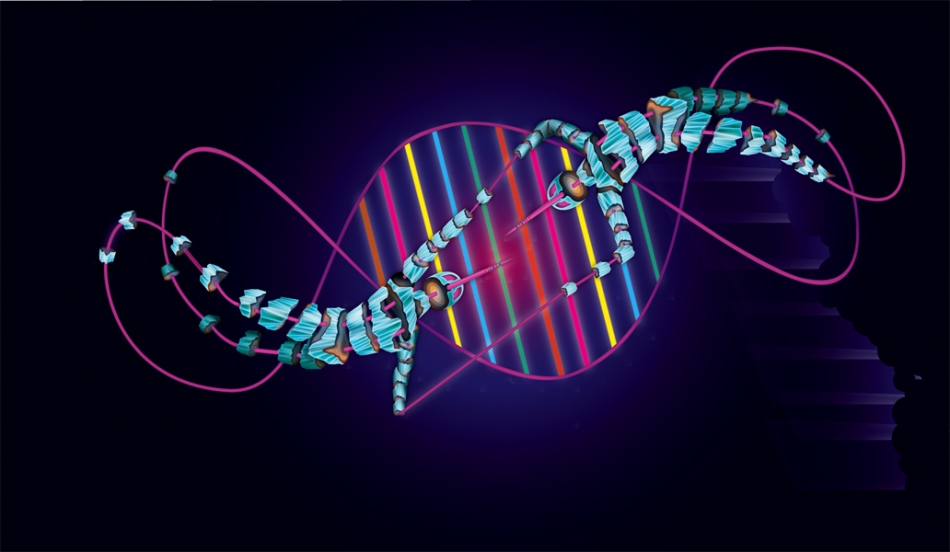COVID variants and our future


Awhile back I wrote a post on everything you needed to know about the COVID vaccine (here), I talked about the science, my experience with it (as someone who got vaccinated very early on), and more importantly why you should feel safe getting your shots too. Very ominously I mentioned that the target for the vaccine was the spike protein because it would (ideally, but not for sure) be conserved across mutations, well it’s time for an update and the news isn’t great.
(more…)A new view of the immune system

Pathogen epitopes are fragments of bacterial or viral proteins. Attached to the surface structure of cells, they prompt the body’s immune system to mount a response against foreign substances. Researchers have determined that nearly a third of all existing human epitopes consist of two different fragments. Known as ‘spliced epitopes’, these types of epitopes have long been regarded as rare. The fact that they are so highly prevalent might, among other things, explain why the immune system is so highly flexible.
Children could point the way to new HIV treatments

Children with HIV who can resist the disease progressing could point the way to new treatments for HIV infection that are more widely applicable to infected adults and children alike, an international team of researchers has found.
Potentially harmful chemicals widespread in household dust

Household dust exposes people to a wide range of toxic chemicals from everyday products, according to a new study. A multi-institutional team conducted a first-of-a-kind meta-analysis, compiling data from dust samples collected throughout the United States to identify the top ten toxic chemicals commonly found in dust.
FAMIN or feast? Newly discovered mechanism influences how immune cells ‘eat’ invaders

A new mechanism that affects how our immune cells perform – and hence their ability to prevent disease – has been discovered by an international team of researchers. To date, researchers have identified hundreds of genetic variants that increase or decrease the risk of developing diseases from cancer and diabetes to tuberculosis and mental health disorders.
Tracking how HIV disrupts immune system informs vaccine development

One of the main mysteries confounding development of an HIV vaccine is why some people infected with the virus make the desired antibodies after several years, but a vaccine can’t seem to induce the same response.
“Shocking” new role of the immune system: Controlling social interaction


Image credit goes to: The awkward Yeti
In a startling discovery that raises fundamental questions about human behavior, researchers have determined that the immune system directly affects – and even controls – creatures’ social behavior, such as their desire to interact with others. So could immune system problems contribute to an inability to have normal social interactions?
Zika virus directly infects brain cells and evades immune system detection

The mosquito-borne Zika virus linked to microcephaly and other neurological problems in newborns of affected mothers directly infects the brain progenitor cells destined to become neurons. The team of researchers used a strain of Zika currently impacting the Americas, and found that the virus infects about 20 percent of cells on average, evades immune system detection, and continues to replicate for weeks.
You are what you eat: Immune cells remember their first meal

Scientists have identified the trigger for immune cells’ inflammatory response — a discovery that may pave the way for new treatments for many human diseases. Immune cells play essential roles in the maintenance and repair of our bodies. When we injure ourselves, immune cells mount a rapid inflammatory response to protect us against infection and help heal the damaged tissue.
Antibody therapy opens door to potential new treatment for HIV

The development of antiretroviral therapy, a combination of drugs that slows the replication of HIV in the body, has transformed the treatment of this infection. What was once a certain death sentence is now a chronic condition that people can live with for decades. But this therapy has drawbacks. There are side effects, including kidney problems, decreased bone density, and gastrointestinal problems. And if a person discontinues his or her treatment, even missing a few doses, the level of the virus in the body is able to rebound quickly.
Stopping organ rejection: An end to the medication

If you’re a transplant recipient you know that transplant organs are a veritable ticking time bomb waiting to be rejected by your well-meaning (but stupid) body. Not only can you do everything right and still have the organs rejected, you have to take a steady stream of expensive pills to inhibit the immune system and stop the body from launching its attack. Don’t throw your pill organizers away just yet, but soon.
Preventing Alzheimer’s, with an implant
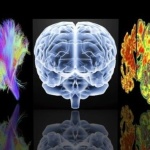
Alzheimer’s has been a losing battle, sure we can fight back with drugs, but that still just prolongs the inevitable. With that said we can all hope this research pans out, to something meaningful. In a cutting-edge treatment for Alzheimer’s disease, EPFL scientists have developed an implantable capsule that can turn the patient’s immune system against the disease. Even better, the implant is subdural, not intracranial.
Antibiotic resistance, evolution, and our future

Without the discovery of antibiotics we could not — and most certainly would not — be living in the world we do today. It was a discovery that would save countless lives, while simultaneously compromising our future. From the use (and unfortunate misuse) of antibiotics, we gave rise to more virulent bacteria that have become resistant to more and more types of antibiotics.
Does your immune system play a larger role in Alzheimer’s disease than thought?

Immune cells that normally help us fight off bacterial and viral infections may play a far greater role in Alzheimer’s disease than originally thought, according to University of California, Irvine neurobiologists with the Sue & Bill Gross Stem Cell Research Center and the Institute for Memory Impairments and Neurological Disorders.
Scientists discover the way to a new generation of antibiotics
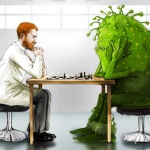
Antibiotic resistance is becoming a common occurrence. Once isolated, more and more we are turning away from the traditional antibiotics to our so called “last line of defense” antibiotics to fight infections. Sadly, in a growing number of cases these antibiotics are having less of an effect. However, new research reveals the mechanism by which drug-resistant bacterial cells maintain a defensive barrier.
Neurological adaptations to the presence of toxic HIV protein
Nearly half of HIV infected patients suffer from impaired neurocognitive function. The HIV protein transactivator of transcription (Tat) is an important contributor to HIV neuropathogenesis because it is a potent neurotoxin that continues to be produced despite treatment with antiretroviral therapy.
It’s complicated: Benefits and toxicity of anti-prion antibodies in the brain

Immunotherapy to ameliorate neurodegeneration by targeting brain protein aggregates with antibodies is an area of intense investigation. A new study examines seemingly contradictory earlier results of targeting the prion protein and proposes a cautionary way forward to further test related therapeutic approaches.
Neurons in your gut help the immune system keep inflammation in check

The immune system exercises constant vigilance to protect the body from external threats–including what we eat and drink. A careful balancing act plays out as digested food travels through the intestine. Immune cells must remain alert to protect against harmful pathogens like Salmonella, but their activity also needs to be tempered since an overreaction can lead to too much inflammation and permanent tissue damage.
The world’s smallest terrorist: Virus hijacks protein machine and then kills the host

Bacteriophages are viruses that infect and kill bacteria. The name originates from the Greek ‘phagos’ which means ‘to devour’. Bacteriophages were discovered 100 years ago because of their ability to replicate in a pathogenic bacterium, kill it and thereby cure the patient. As a small spaceship landing on the moon, the microscopic particles land on the surface of the bacteria where they inject their deadly genetic material.
Healthy or sick? Tiny cell bubbles may hold the answer

Rutgers scientists have uncovered biological pathways in the roundworm that provide insight into how tiny bubbles released by cells can have beneficial health effects, like promoting tissue repair, or may play a diabolical role and carry disease signals for cancer or neurodegenerative diseases like Alzheimer’s.
Novel insights into genetic cause of autoimmune diseases
A collaboration between researchers at the Babraham Institute and the University of Manchester has mapped the physical connections occurring in the genome to shed light on the parts of the genome involved in autoimmune diseases. Using a new technique, called Capture Hi-C, the team revealed novel insights into how changes in the genetic sequence have a biological effect and increase the risk of disease.
Closing the loop on an HIV escape mechanism
Nearly 37 million people worldwide are living with HIV. When the virus destroys so many immune cells that the body can’t fight off infection, AIDS will develop. The disease took the lives of more than a million people last year.
A protein-RNA structure hints at how viruses commandeer human proteins
Researchers at Case Western Reserve University and the University of Michigan have produced the first image of an important human protein as it binds with ribonucleic acid (RNA), a discovery that could offer clues to how some viruses, including HIV, control expression of their genetic material. That information could lead to new strategies to block viruses from replicating, thereby limiting or halting infection.
New vaccine could prevent high cholesterol


Time to pug out…
Image credit goes to: (Once again) the talented and creative Lora Zombie
A new cholesterol-lowering vaccine leads to reductions in ‘bad’ LDL cholesterol in mice and macaques, according to research. The authors of the study, from the University of New Mexico and the National Institutes of health in the United States, say the vaccine has the potential to be a more powerful treatment than statins alone.
The first line of defense? Think Mucus
By licking a wound it heals faster — this is not simply popular belief, but scientifically proven. Our saliva consists of water and mucus, among other things, and the mucus plays an important role. It stimulates white blood cells to build a good defense against invaders, according to a group of researchers at Lund University in Sweden together with colleagues from Copenhagen and Odense in Denmark.
Brain’s immune system could be harnessed to fight Alzheimer’s
A new study suggests that the brain’s immune system could potentially be harnessed to help clear the amyloid plaques that are a hallmark of Alzheimer’s disease.
Intestinal worms ‘talk’ to gut bacteria to boost immune system
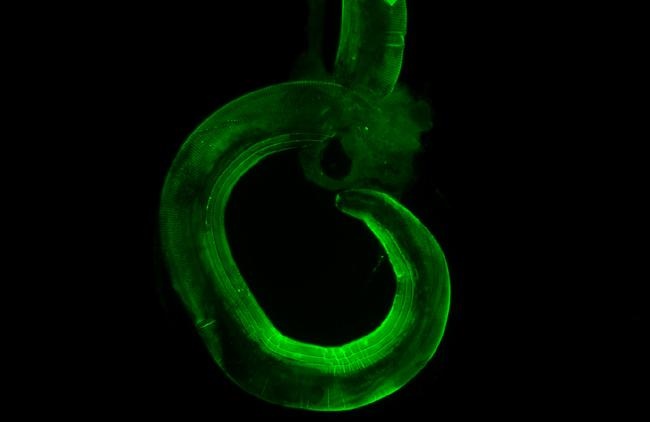
This is the helminth Heligmosomoides polygyrus bakeri (Hpb), which infects rodents. Here seen under fluorescent staining. Hpb was used in the mouse part of this study.
Image credit goes to: Nicola Harris/EPFL
When you think parasites you probably don’t think of anything helpful. However, this isn’t the case and certain parasites inadvertently help the host by helping themselves. In fact, researchers have discovered how intestinal worm infections cross-talk with gut bacteria to help the immune system.
Blood clotting protein triggers immune attack on the brain
A new study from the Gladstone Institutes shows that a single drop of blood in the brain is sufficient to activate an autoimmune response akin to multiple sclerosis (MS). This is the first demonstration that introduction of blood in the healthy brain is sufficient to cause peripheral immune cells to enter the brain, which then go on to cause brain damage.
Vaccine clears some precancerous cervical lesions in clinical trial
Scientists have used a genetically engineered vaccine to successfully eradicate high-grade precancerous cervical lesions in nearly one-half of women who received the vaccine in a clinical trial. The goal, say the scientists, was to find nonsurgical ways to treat precancerous lesions caused by HPV.
An antibody that can attack HIV in new ways

Broadly neutralizing antibodies to HIV-1 envelope glycoprotein are being evaluated as therapeutics to prevent or treat HIV-1 infection. Structural analysis of one such antibody, 8ANC195, revealed a new conformation of the envelope protein. The image shows the X-ray crystal structure of 8ANC195 in complex with the gp120 subunit of the envelope protein. The background shows schematic representations of HIV-1 virus particles studded with envelope proteins being recognized by 8ANC195 antibodies.
Image credit goes to: Louise Scharf/Caltech
Proteins called broadly neutralizing antibodies (bNAbs) are a promising key to the prevention of infection by HIV, the virus that causes AIDS. bNAbs have been found in blood samples from some HIV patients whose immune systems can naturally control the infection. These antibodies may protect a patient’s healthy cells by recognizing a protein called the envelope spike, present on the surface of all HIV strains and inhibiting, or neutralizing, the effects of the virus. Now Caltech researchers have discovered that one particular bNAb may be able to recognize this signature protein, even as it takes on different conformations during infection–making it easier to detect and neutralize the viruses in an infected patient.
HIV particles do not cause AIDS, our own immune cells do
Researchers have revealed that HIV does not cause AIDS by the virus’s direct effect on the host’s immune cells, but rather through the cells’ lethal influence on one another. HIV can either be spread through free-floating virus that directly infect the host immune cells or an infected cell can pass the virus to an uninfected cell.
Study details ‘rotten egg’ gas’ role in autoimmune disease
The immune system not only responds to infections and other potentially problematic abnormalities in the body, it also contains a built-in brake in the form of regulatory T cells, or Tregs. Tregs ensure that inflammatory responses don’t get out of hand and do damage. In autoimmune diseases, sometimes these Treg cells don’t act as they should.
New approach for making vaccines for deadly diseases
Researchers have devised an entirely new approach to vaccines – creating immunity without vaccination. The team has demonstrated that animals injected with synthetic DNA engineered to encode a specific neutralizing antibody against the dengue virus were capable of producing the exact antibodies necessary to protect against disease, without the need for standard antigen-based vaccination. Importantly, this approach, termed DMAb, was rapid, protecting animals within a week of administration.
Cholesterol metabolism in immune cells linked to HIV progression, may lead to new therapy
Enhanced cholesterol metabolism in certain immune cells may help some people infected with HIV naturally control disease progression, according to new research. The findings provide a basis for potential development of new approaches to control HIV infection by regulating cellular cholesterol metabolism.
How the tumor escapes the immune response
Natural killer cells of the immune system can fend off malignant lymphoma cells and thus are considered a promising therapeutic approach. However, in the direct vicinity of the tumor they lose their effect. Scientists have now elucidated which mechanisms block the natural killer cells and how this blockade could be lifted.
Discovery points to a new path toward a universal flu vaccine
Flu vaccines can be something of a shot in the dark. Not only must they be given yearly, there’s no guarantee the strains against which they protect will be the ones circulating once the season arrives. New research by Rockefeller University scientists suggests it may be possible to harness a previously unknown mechanism within the immune system to create more effective and efficient vaccines against this ever-mutating virus.
Autoimmunity: New immunoregulation and biomarker
Clinicians at Ludwig-Maximilians-Universitaet (LMU) in Munich have elucidated a mechanism involved in determining the lifespan of antibody-producing cells, and identified a promising new biomarker for monitoring autoimmune diseases like multiple sclerosis and lupus erythematosus.
New drug can clear all psoriasis symptoms

Good news for anyone who has psoriasis, a University of Manchester led trial of a new drug has resulted in 40 percent of people showing a complete clearance of psoriatic plaques after 12 weeks of treatment and over 90 percent showing improvement. The research tested 2,500 people with psoriasis. Half were given a new drug – ixekizumab – either once every two or four weeks. The other half were given a placebo or a widely used drug for psoriasis called etanercept.
First functional, synthetic immune organ with controllable antibodies created by engineers
Cornell University engineers have created a functional, synthetic immune organ that produces antibodies and can be controlled in the lab, completely separate from a living organism. The engineered organ has implications for everything from rapid production of immune therapies to new frontiers in cancer or infectious disease research.
Educating the immune system: A vaccine for allergies
With the arrival of spring, millions of people have begun their annual ritual of sneezing and wheezing due to seasonal allergies. However, a Canadian research team is bringing them hope with a potential vaccine that nudges the immune response away from developing allergies. The findings have major clinical implications since allergies and asthma are lifelong conditions that often start in childhood and for which there is presently no cure.
Researchers find genetic link between overactive and underactive immune systems
In the largest genetic study to date of a challenging immunodeficiency disorder, scientists have identified a gene that may be a “missing link” between overactive and underactive immune activity. The gene candidate also plays a key role in autoimmune diseases such as type 1 diabetes, rheumatoid arthritis and even allergies.
Type 1 diabetes: On the way to an insulin vaccine
Pseudoscience claims about vaccines are seemingly hitting a fever pitch. Despite that, a new vaccine may be on the horizon for children at risk for diabetes, and that is a good thing. Researchers have found that children at risk for type 1 diabetes, who were given daily doses of oral insulin, developed a protective immune response to the disease that could lay the groundwork for a vaccine against the chronic illness.
First human HIV-antibody trials, results are promising
While there is no cure for HIV, a select few known as HIV controllers can literally live with it. Over the years work has been done trying to figure out what makes these individuals so special and it has helped researchers in the fight against HIV. While we are still searching for a vaccine, researchers have now found that a single infusion of an experimental anti-HIV antibody called 3BNC117 resulted in significantly decreased HIV levels that persisted for as long as 28 days in HIV-infected individuals, according to Phase 1 clinical trial findings.
Researchers find protein that triggers lupus-associated immune system activation
Researchers have identified an inflammatory molecule that appears to play an essential role in the autoimmune disorder systemic lupus erythematosus, commonly known simply as lupus. In their report the team describes finding that a protein that regulates certain cells in the innate immune system – the body’s first line of defense against infection – activates a molecular pathway known to be associated with lupus and that the protein’s activity is required for the development of lupus symptoms in a mouse model of the disease.
Smoking, bad for you, good for MRSA
Methicillin-resistant Staphylococcus aureus (MRSA), an antibiotic-resistant superbug, can cause life-threatening skin, bloodstream and surgical site infections or pneumonia. It has been a tough battle finding ways to fight it and research now shows, cigarette smoke may make matters worse. The study shows that MRSA bacteria exposed to cigarette smoke become even more resistant to killing by the immune system.
Scientists find the genetic trigger for immune system response
Mitochondria are the “powerhouse of the cell.” We all learn in biology that they have seemingly one function in the body, converting food and oxygen into energy. Well that might not be the case anymore; the thousands of mitochondrial DNA (mtDNA) molecules present in each cell have been identified in an unexpected relationship with the innate immune response.
Could a Vaccine for Cancer be a Reality?
How do you take out an unstoppable enemy? You don’t take the enemy head on, you take out the supply lines and the rest will take care of itself. This is not a new idea, but this not so new approach to war is being taken to an enemy on a new battlefield, your body.
Cancer in most cases can be an unstoppable force, collateral damage from chemotherapy can be, and in most cases is unacceptable. That was the thinking from a group of researchers from the Abramson Cancer Center and the Perelman School of Medicine at the University of Pennsylvania. Their idea, to attack the supply lines instead of the enemy directly.

